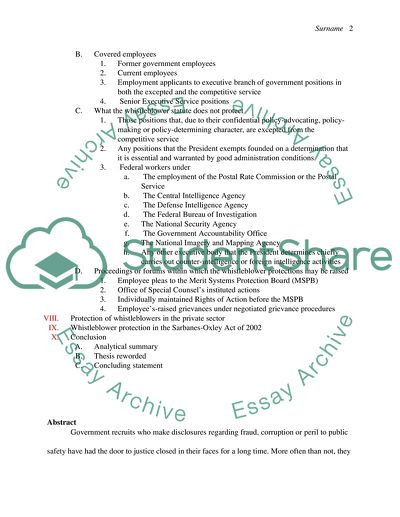Cite this document
(“The Whistleblower Protection Act of 1989 Research Paper”, n.d.)
The Whistleblower Protection Act of 1989 Research Paper. Retrieved from https://studentshare.org/history/1733707-the-whistleblower-protection-act-of-1989
The Whistleblower Protection Act of 1989 Research Paper. Retrieved from https://studentshare.org/history/1733707-the-whistleblower-protection-act-of-1989
(The Whistleblower Protection Act of 1989 Research Paper)
The Whistleblower Protection Act of 1989 Research Paper. https://studentshare.org/history/1733707-the-whistleblower-protection-act-of-1989.
The Whistleblower Protection Act of 1989 Research Paper. https://studentshare.org/history/1733707-the-whistleblower-protection-act-of-1989.
“The Whistleblower Protection Act of 1989 Research Paper”, n.d. https://studentshare.org/history/1733707-the-whistleblower-protection-act-of-1989.


